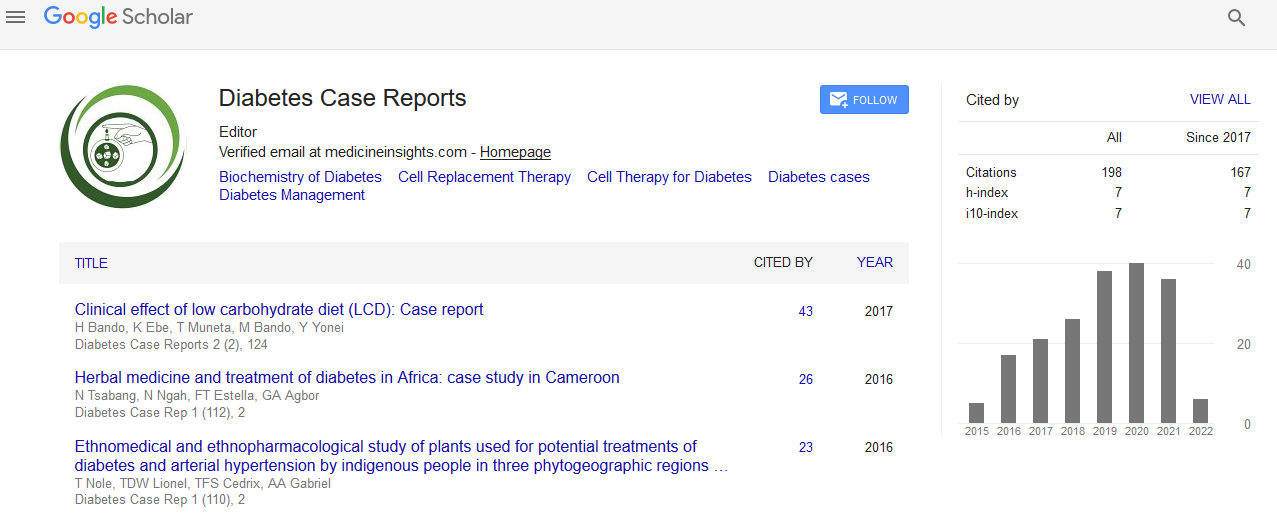Indexed In
- RefSeek
- Hamdard University
- EBSCO A-Z
- Euro Pub
- Google Scholar
Useful Links
Share This Page
Journal Flyer

Open Access Journals
- Agri and Aquaculture
- Biochemistry
- Bioinformatics & Systems Biology
- Business & Management
- Chemistry
- Clinical Sciences
- Engineering
- Food & Nutrition
- General Science
- Genetics & Molecular Biology
- Immunology & Microbiology
- Medical Sciences
- Neuroscience & Psychology
- Nursing & Health Care
- Pharmaceutical Sciences
Abstract
Diabetic Ketoacidosis Due to Type 1 Diabetes Mellitus Induced by Interferon Therapy for Chronic Hepatitis C During the Course of Hashimoto’s Thyroiditis: Case Report
Rie Jo, Kyoko Iwase, Toshihiro Nishizawa and Hisaji Ohshima
Interferon ? (IFN?) has been reported to induce several autoimmune diseases, including autoimmune thyroiditis (AITD) and type 1 diabetes (T1D). In addition, co-occurrence of T1D and AITD is well known as one of the variants of the autoimmune polyglandular syndrome type 3. Meanwhile, there are no reports about the risk of development of IFN treatment-related T1D in patients with previously diagnosed AITD. We present a single case report about a 61-yearold Japanese woman with Diabetic Ketoacidosis (DKA) three months after the initiation of the combination therapy with peginterferon ?-2b and ribavirin for chronic hepatitis C. She was diagnosed with T1D owing to severely impaired insulin secretion along with DKA and presence of positive GAD antibody. Her T1D was supposed to be induced by IFN therapy. She had received the replacement therapy for hypothyroidism resulting from Hashimoto?s thyroiditis for 30 years. The patient had human leukocyte antigens (HLA), DRB1*04:05 and DQB1*04:01, which are associated with a genetic predisposition for T1D and AITD. Patients with previously diagnosed AITD are assumed to be at high risk for IFN treatment-related T1D because most patients with T1D triggered by IFN were reported to have genetic susceptibilities similar to those with classical T1D and AITD. In conclusion, patients with known AITD should be carefully monitored for their glycemic condition to avoid life-threatening events such as DKA when they receive IFN therapy.

